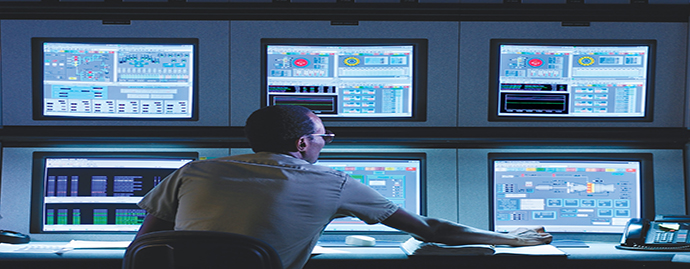| Start Date | End Date | Country | City |
|---|

 +966 920007771
+966 920007771

Objectives
To provide participants with a better understanding of process control & instrumentation in Petrochemical industry and method of solving their control instruments problems. At the end of the course, the participants will:
- Know the process control in petrochemical industry
- Know how the controls & instruments work in petrochemical industry
- Understand the concept of instrumentation
- Understand the characteristics of instruments
- Understand the sensors, controllers and actuators
- Understand static and dynamics characteristics of instrument
- Know how to identify the correct signal in the control loop
- Know the signal properties in digital control loop
- Know the valves – Know the calibration and operation
- Know the standard
- Know the P.I.D. loops
- Be able to detect a loops disfunction
- Be able to explain exactly the central problems with the tuners
Outlines
Day 1
Petrochemical Process
- Petroleum processing
- Unit operations in petroleum industry
- Chemicals from petroleum products
Measurements & Controls
- Measurements in Petrochemical industry
- Control loops in Petrochemical industry.
- Process control principles
Day 2
The Control Loop
- Function and constitution of control loops and on-off control systems.
- Pneumatic, electrical and digital loops.
- Power supply, signal transmission via tubes, cables, bus, optical fibers.
Instrument Symbols
- Main types of instrument. Tags and symbols.
External Devices/ Sensors
- Accuracy and tuning of measuring devices.
- Temperature measurement: temperature scales, non-electrical thermometers, electrical measuring devices.
- Pressure measurement: measurement units, devices for local reading or for transmission, pressure gauge installation.
- Flow measurement: measurement units, head meters, other principles and devices:
- electromagnetic and ultrasonic meters, vortex effect, Coriolis effect.
- Level measurement: level glass, float-actuated and displacer devices.
- Other principles and devices: radioactive, capacitance, ultrasonic and radar devices, differential pressure cells.
- Two-position sensors: safety devices, position sensors, temperature and pressure sensors.
Day 3
Transmitters / Control valves
- Transmitters
- Pneumatic, electric, digital and teleprogrammable transmitters.
- Typical control valves
- Technology and operation. Safety positions. Rotating gate valves, three-way valves and others.
- Different types of valve plugs, real characteristics on a circuit.
- Positioners
- Operating principle, pneumatic and electropneumatic positioners.
Day 4
Controllers
- Basic function of a controller
- Introduction to Increase-decrease mode
- Concepts of feedback and performance of feedback systems
- P, PI, PID controllers and Simple PID tuning
DAY5
Control Loop Implementation
- Implementation of various control loop elements based on simulated examples of increasingly complex process functions.
- Application to: simple loops, cascade control systems, split-range combinations, fractionation, calculated variable and feed forward control systems.
- Simple assignments
- Group Discussion
Who Should Attend
- Technical officers in Automation industry
- Mechanical supervisors
- Maintenance staff.
Duration
5 Days









